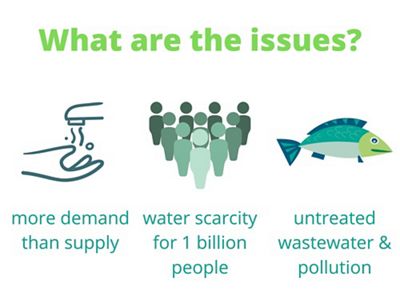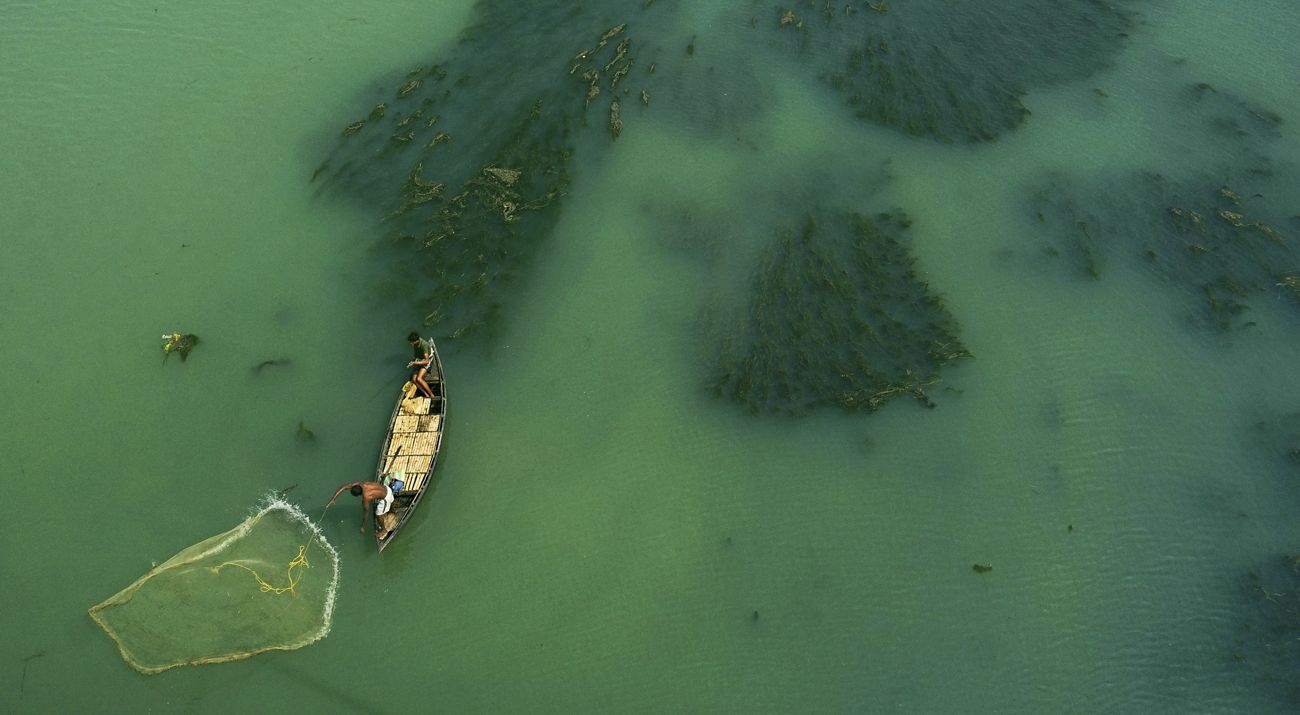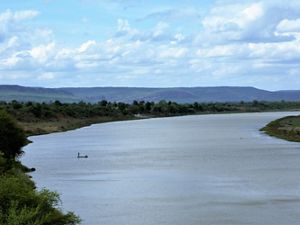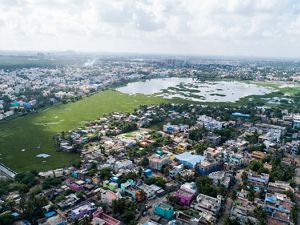Protect and Restore Wild Habitats
Prioritising conservation of freshwater ecosystems in India
Envisioning a plan for freshwater ecosystem conservation
All life needs water
Nothing is truer than this. Water is the most valuable resource to sustain life on Earth, from the rice you eat, to the energy you rely on daily, to nature and biodiversity you cherish. Basically, everything you and your life depends on needs water.
India has a rich variety of freshwater ecosystems – such as rivers, lakes, ponds, wetlands, aquifers, and streams – which together occupy just 0.1% of the Earth’s surface yet support 17% of the global human population and 8% of global biodiversity. India is one of the most mega-biodiverse countries in the world and around 10% of India’s animal species are associated with freshwater ecosystems, several of which are unique to India. Freshwater ecosystems also provide critical benefits for people, such as flood protection, food production, water filtration and carbon sequestration.

Today, India’s freshwaters are plagued with threats such as overexploitation, scarcity, pollution, flow modification, loss of connectivity and habitat, and climate change (leading to the increasing frequency of droughts and floods). The overuse of our water resources has caused a serious decline in the availability of freshwater. Given the scale of these impacts and the importance of freshwater resources, it is crucial that holistic and focused efforts are made to protect, conserve, and restore all types of freshwater ecosystems (including biodiversity, habitats, and ecosystem processes) while addressing human needs. It is critical to prioritise the areas where action from limited conservation resources can be used most effectively. Freshwater ecosystems, on which all life depends, if not conserved and restored NOW, will soon go beyond the point of no return.
Reversing trends of decline
Since October 2020, The Nature Conservancy, and our partner – Foundation of Ecological Security (FES) – have joined hands for an initiative we call ‘Prioritising the conservation of freshwater ecosystems in India’. Grounded in science, we are working to develop a shared conservation vision for freshwater ecosystems, that hopes to propel large-scale and long-term conservation and restoration action in India.
Why freshwater matters?





This initiative will not only enable the conservation and restoration of the freshwater ecosystems but also have positive impact on hundreds of millions of Indians who rely on rivers, streams, lakes, wetlands, and groundwater for their lives, thereby reversing or reducing freshwater degradation and decline. Such a plan will help us manage freshwater resources sustainably and strengthen the resilience of freshwater ecosystems.
The first phase of the initiative will focus on conservation action mapping at a national scale that will in turn help guide wise choices by informing a wide array of conservation decisions, including prioritising locations to establish protected areas, actions to conserve a species or an ecosystem, and actions to address key threats.
Additionally, the initiative intends to create a collaborative process to simultaneously identify strategies and places where focused interventions of limited resources will have the biggest impact while making smart investments in conservation initiatives that enhance the return on investment. This will require bringing together ecological, hydrological, socioecological, and other data to guide where a conservation strategy is feasible and can produce benefits for nature and for people through the provision of ecosystem services.
Quote: Roshni Arora
It’s necessary to undertake scientifically driven prioritisation efforts to determine spatial configuration that would most efficiently conserve viable examples of all significant biodiversity features for both nature and people.
This initiative has three clearly defined objectives:
- Develop a shared conservation vision, both long- and short-term, for freshwater ecosystems at a national scale.
- Produce a map showing priority areas and actions for India to focus on freshwater ecosystem conservation and planning.
- Conduct a collaborative conservation planning exercise in one such priority area.
Imagining a plan for India’s freshwater ecosystems
After developing a shared conservation vision for freshwater ecosystems in India, the road ahead will include:
- Continuing with systematic conservation planning process.
- Developing conservation plans for two priority areas collaboratively with key stakeholders.
- Initiating implementation of the conservation plans in the chosen priority areas.
- Developing a guide for freshwater conservation planning for decision-makers, conservation practitioners, conservation organisations and other key stakeholders.
- At a later stage, we plan to utilise our on-ground experience and learnings to develop and share conservation tools, techniques and knowledge nationally as well as internationally.
Quote: Mr. Jagdeesh Rao, Anchor and Curator
Protecting freshwater ecosystems cannot happen alone
Any sustainable conservation plan cannot happen in isolation. Hence, we partner with governments, local communities, peer organisations, businesses, multilateral and bilateral organisation, donors and international financial institutions to provide resilient and healthy freshwater ecosystems, conserve biodiversity and ensure a sustainable future for all. Support from our partners and key stakeholders is one the keys to having a sustainable conservation plan for our freshwater ecosystems.
We also express our sincerest gratitude to all our donors, partner organisations, advisors, and supporters for their continued support and generous donations towards this initiative.





